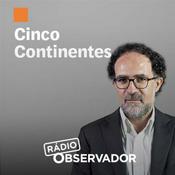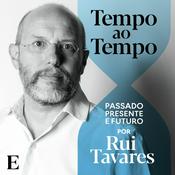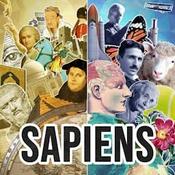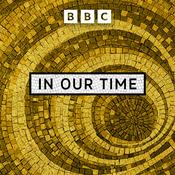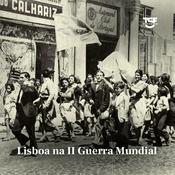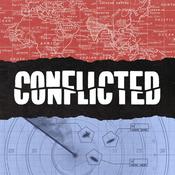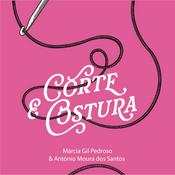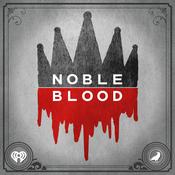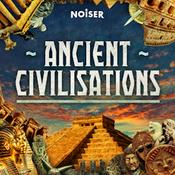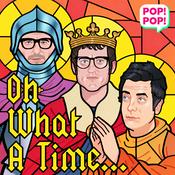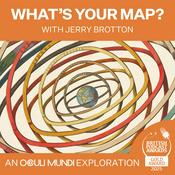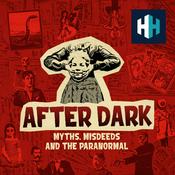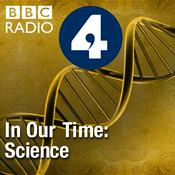157 episódios
- Melvyn Bragg and guests discuss the French philosopher Maurice Merleau-Ponty (1908-1961), who was part of the movement known as phenomenology. While less well-known than his contemporaries Jean-Paul Sartre and Simone de Beauvoir, his popularity has increased among philosophers in recent years. Merleau-Ponty rejected Rene Descartes’ division between body and mind, arguing that the way we perceive the world around us cannot be separated from our experience of inhabiting a physical body. Merleau-Ponty was interested in the down-to-earth question of what it is actually like to live in the world. While performing actions as simple as brushing our teeth or patting a dog, we shape the world and, in turn, the world shapes us.
With
Komarine Romdenh-Romluc
Senior Lecturer in Philosophy at the University of Sheffield
Thomas Baldwin
Emeritus Professor of Philosophy at the University of York
And
Timothy Mooney
Associate Professor of Philosophy at University College, Dublin
Produced by Eliane Glaser
Reading list:
Peter Antich, Motivation and the Primacy of Perception: Merleau-Ponty’s Phenomenology of
Knowledge (Ohio University Press, 2021)
Dimitris Apostolopoulos, Merleau-Ponty’s Phenomenology of Language (Rowman and Littlefield, 2019)
Sarah Bakewell, At the Existentialist Café: Freedom, Being and Apricot Cocktails (Chatto and Windus, 2016)
Thomas Baldwin (ed.), Maurice Merleau-Ponty: Basic Writings (Routledge, 2004)
Thomas Baldwin (ed.), Reading Merleau-Ponty (Routledge, 2007)
Renaud Barbaras (trans. Ted Toadvine and Leonard Lawlor), The Being of the Phenomenon: Merleau-Ponty’s Ontology (Indiana University Press, 2004).
Anya Daly, Merleau-Ponty and the Ethics of Intersubjectivity (Palgrave Macmillan, 2016)
M. C. Dillon, Merleau-Ponty’s Ontology (Northwestern University Press, 1998, 2nd ed.)
Maurice Merleau-Ponty (trans. Alden L. Fisher), The Structure of Behavior (first published 1942; Beacon Press, 1976)
Maurice Merleau-Ponty (trans. Donald Landes), Phenomenology of Perception (first published 1945; Routledge, 2011)
Maurice Merleau-Ponty, Sense and Non-Sense (first published 1948; Northwestern University Press, 1964)
Maurice Merleau-Ponty, Signs (first published 1960; Northwestern University Press, 1964)
Maurice Merleau-Ponty, The Visible and the Invisible (first published 1964; Northwestern University Press, 1968)
Maurice Merleau-Ponty (trans. Oliver Davis with an introduction by Thomas Baldwin), The World of Perception (Routledge, 2008)
Ariane Mildenberg (ed.), Understanding Merleau-Ponty, Understanding Modernism (Bloomsbury, 2019)
Timothy Mooney, Merleau-Ponty’s Phenomenology of Perception: On the Body Informed
(Cambridge University Press, 2023)
Katherine J. Morris, Starting with Merleau-Ponty (Continuum, 2012)
Komarine Romdenh-Romluc, Merleau-Ponty and Phenomenology of Perception (Routledge, 2011)
Komarine Romdenh-Romluc, The Routledge Guidebook to Merleau-Ponty’s Phenomenology of Perception (Routledge, 2011)
Jean-Paul Sartre (trans. Benita Eisler), Situations (Hamish Hamilton, 1965)
Hilary Spurling, The Girl from the Fiction Department (Penguin, 2003)
Jon Stewart (ed.), The Debate Between Sartre and Merleau-Ponty (Northwestern University Press, 1998)
Ted Toadvine, Merleau-Ponty’s Philosophy of Nature (Northwestern University
Press, 2009)
Kerry Whiteside, Merleau-Ponty and the Foundation of an Existential Politics (Princeton University Press, 1988)
Iris Marion Young, On Female Body Experience: “Throwing Like a Girl” and Other Essays (Oxford University Press, 2005)
In Our Time is a BBC Studios Audio Production - Melvyn Bragg and guests discuss Plato's Crito and Phaedo, his accounts of the last days of Socrates in prison in 399 BC as he waited to be executed by drinking hemlock. Both works show Socrates preparing to die in the way he had lived: doing philosophy. In the Crito, Plato shows Socrates arguing that he is duty bound not to escape from prison even though a bribe would open the door, while in the Phaedo his argument is for the immortality of the soul which, at the point of death, might leave uncorrupted from the 'prison' of his body, the one escape that truly mattered to Socrates. His example in his last days has proved an inspiration to thinkers over the centuries and in no small way has helped ensure the strength of his reputation.
With
Angie Hobbs
Professor of the Public Understanding of Philosophy at the University of Sheffield
Fiona Leigh
Associate Professor in the Department of Philosophy at University College London
And
James Warren
Professor of Ancient Philosophy at the University of Cambridge and Fellow of Corpus Christi College, Cambridge
Producer: Simon Tillotson
Reading list:
David Ebrey, Plato’s Phaedo: Forms, Death and the Philosophical Life (Cambridge University Press, 2023)
Dorothea Frede, ‘The Final Proof of the Immortality of the Soul in Plato’s Phaedo 102a-107a’ (Phronesis 23, 1978)
W. K. C. Guthrie, A History of Greek Philosophy, vol. 4, Plato: The Man and his Dialogues, Earlier Period (Cambridge University Press, 2008)
Verity Harte, ‘Conflicting Values in Plato’s Crito’ (Archiv. für Geschichte der Philosophie 81, 1999)
Angie Hobbs, Why Plato Matters Now (Bloomsbury, forthcoming 2025), especially chapter 5
Rachana Kamtekar (ed.), Plato’s Euthyphro, Apology and Crito: Critical Essays (Rowman and Littlefield, 2004)
Richard Kraut, Socrates and the State (Princeton University Press, 1984)
Melissa Lane, ‘Argument and Agreement in Plato’s Crito’ (History of Political Thought 19, 1998)
Plato (trans. Chris Emlyn-Jones and William Preddy), Euthyphro, Apology, Crito, Phaedo and Phaedrus (Loeb Classical Library, Harvard University Press, 2017)
Plato (trans. G. M. A. Grube and John Cooper), The Trial and Death of Socrates: Euthyphro Apology, Crito, Phaedo (Hackett, 2001)
Plato (trans. Christopher Rowe), The Last Days of Socrates: Euthyphro, Apology, Crito, Phaedo (Penguin, 2010)
Donald R. Robinson (ed.), The Cambridge Companion to Socrates (Cambridge University Press, 2011)
David Sedley and Alex Long (eds.), Plato: Meno and Phaedo (Cambridge University Press, 2010)
James Warren, ‘Forms of Agreement in Plato’s Crito’ (Proceedings of the Aristotelian Society, Volume 123, Issue 1, April 2023)
Robin Waterfield, Why Socrates Died: Dispelling the Myths (Faber and Faber, 2010)
In Our Time is a BBC Studios Audio Production - Melvyn Bragg and guests discuss the Austrian-British economist Friedrich Hayek's The Road to Serfdom (1944) in which Hayek (1899-1992) warned that the way Britain was running its wartime economy would not work in peacetime and could lead to tyranny. His target was centralised planning, arguing this disempowered individuals and wasted their knowledge, while empowering those ill-suited to run an economy. He was concerned about the support for the perceived success of Soviet centralisation, when he saw this and Fascist systems as two sides of the same coin. When Reader's Digest selectively condensed Hayek’s book in 1945, and presented it not so much as a warning against tyranny as a proof against socialism, it became phenomenally influential around the world.
With
Bruce Caldwell
Research Professor of Economics at Duke University and Director of the Center for the History of Political Economy
Melissa Lane
The Class of 1943 Professor of Politics at Princeton University and the 50th Professor of Rhetoric at Gresham College in London
And
Ben Jackson
Professor of Modern History and fellow of University College at the University of Oxford
Producer: Simon Tillotson
Reading list:
Angus Burgin, The Great Persuasion: Reinventing Free Markets Since the Depression (Harvard University Press, 2012)
Bruce Caldwell, Hayek’s Challenge: An Intellectual Biography of F.A. Hayek (University of Chicago Press, 2004)
Bruce Caldwell, ‘The Road to Serfdom After 75 Years’ (Journal of Economic Literature 58, 2020)
Bruce Caldwell and Hansjoerg Klausinger, Hayek: A Life 1899-1950 (University of Chicago Press, 2022)
M. Desai, Marx’s Revenge: The Resurgence of Capitalism and the Death of Statist Socialism (Verso, 2002)
Edward Feser (ed.), The Cambridge Companion to Hayek (Cambridge University Press, 2006)
Andrew Gamble, Hayek: The Iron Cage of Liberty (Polity, 1996)
Friedrich Hayek, Collectivist Economic Planning (first published 1935; Ludwig von Mises Institute, 2015), especially ‘The Nature and History of the Problem’ and ‘The Present State of the Debate’ by Friedrich Hayek
Friedrich Hayek (ed. Bruce Caldwell), The Road to Serfdom: Text and Documents: The Definitive Edition (first published 1944; Routledge, 2008. Also vol. 2 of The Collected Works of F. A. Hayek, University of Chicago Press, 2007)
Friedrich Hayek, The Road to Serfdom: Condensed Version (Institute of Economic Affairs, 2005; The Reader’s Digest condensation of the book)
Friedrich Hayek, ‘The Use of Knowledge in Society’ (American Economic Review, vol. 35, 1945; vol. 15 of The Collected Works of F. A. Hayek, University of Chicago Press)
Friedrich Hayek, Individualism and Economic Order (first published 1948; University of Chicago Press, 1996), especially the essays ‘Economics and Knowledge’ (1937), ‘Individualism: True and False’ (1945), and ‘The Use of Knowledge in Society’ (1945)
Friedrich Hayek, The Constitution of Liberty (first published 1960; Routledge, 2006)
Friedrich Hayek, Law. Legislation and Liberty: A new statement of the liberal principles of justice and political economy (first published 1973 in 3 volumes; single vol. edn, Routledge, 2012)
Ben Jackson, ‘Freedom, the Common Good and the Rule of Law: Hayek and Lippmann on Economic Planning’ (Journal of the History of Ideas 73, 2012)
Robert Leeson (ed.), Hayek: A Collaborative Biography Part I (Palgrave, 2013), especially ‘The Genesis and Reception of The Road to Serfdom’ by Melissa Lane
In Our Time is a BBC Studios Audio Production - Melvyn Bragg and guests discuss one of the most significant philosophers of the twentieth century, Philippa Foot (1920 - 2010). Her central question was, “Why be moral?” Drawing on Aristotle and Aquinas, Foot spent her life working through her instinct that there was something lacking in the prevailing philosophy of the 1950s and 1960s which held that values could only be subjective. Could there really be no objective response to the horrors of the concentration camps that she had seen on newsreels, no way of saying that such acts were morally wrong? Foot developed an ethics based on virtues, in which humans needed virtues to flourish as surely as plants needed light and water. While working through her ideas she explored applied ethics and the difference between doing something and letting it happen, an idea she illustrated with what became The Trolley Problem.
With
Anil Gomes
Fellow and Tutor in Philosophy at Trinity College, University of Oxford
Sophie Grace Chappell
Professor of Philosophy at the Open University
And
Rachael Wiseman
Reader in Philosophy at the University of Liverpool
Producer: Simon Tillotson
In Our Time is a BBC Studios Audio Production
Reading list:
Philippa Foot, Virtues and Vices (Oxford University Press, 1978)
Philippa Foot, Moral Dilemmas (Oxford University Press, 2002)
Philippa Foot, Natural Goodness (Oxford University Press, 2001)
John Hacker-Wright, Philippa Foot's Moral Thought (Bloomsbury, 2013)
Benjamin Lipscomb, The Women Are Up To Something (Oxford University Press, 2021)
Clare Mac Cumhaill and Rachael Wiseman, Metaphysical Animals: How Four Women Brought Philosophy Back to Life (Chatto, 2022)
Dan Russell (ed.), The Cambridge Companion to Virtue Ethics (Cambridge University Press), especially ‘Virtue Ethics in the Twentieth Century’ by Timothy (now Sophie Grace) Chappell - Melvyn Bragg and guests discuss the idea that some kind of consciousness is present not just in our human brains but throughout the universe, right down to cells or even electrons. This is panpsychism and its proponents argue it offers a compelling alternative to those who say we are nothing but matter, like machines, and to those who say we are both matter and something else we might call soul. It is a third way. Critics argue panpsychism is implausible, an example of how not to approach this problem, yet interest has been growing widely in recent decades partly for the idea itself and partly in the broader context of understanding how consciousness arises.
With
Tim Crane
Professor of Philosophy and Pro-Rector at the Central European University
Director of Research, FWF Cluster of Excellence, Knowledge in Crisis
Joanna Leidenhag,
Associate Professor in Theology and Philosophy at the University of Leeds
And
Philip Goff
Professor of Philosophy at Durham University
Producer: Simon Tillotson
Reading list:
Anthony Freeman (ed.), Consciousness and Its Place in Nature: Does Physicalism Entail Panpsychism? (Imprint Academic, 2006), especially 'Realistic Monism' by Galen Strawson
Philip Goff, Galileo's Error: Foundations for A New Science of Consciousness (Pantheon, 2019)
Philip Goff, Why? The Purpose of the Universe (Oxford University Press, 2023)
David Ray Griffin, Unsnarling the World-Knot: Consciousness, Freedom and the Mind-Body Problem (Wipf & Stock, 2008)
Joanna Leidenhag, Minding Creation: Theological Panpsychism and the Doctrine of Creation (Bloomsbury, 2021)
Joanna Leidenhag, ‘Panpsychism and God’ (Philosophy Compass Vol 17, Is 12, e12889)
Hedda Hassel Mørch, Non-physicalist Theories of Consciousness (Cambridge University Press, 2024)
Thomas Nagel, Mortal Questions (Cambridge University Press, 2012), especially the chapter 'Panpsychism'
David Skrbina, Panpsychism in the West (MIT Press, 2007)
James van Cleve, 'Mind-Dust or Magic? Panpsychism versus Emergence' (Philosophical Perspectives Vol. 4, Action Theory and Philosophy of Mind, Ridgeview Publishing Company, 1990)
Mais podcasts de História
Podcasts em tendência em História
Sobre In Our Time: Philosophy
From Altruism to Wittgenstein, philosophers, theories and key themes.
Sítio Web de podcastOuve In Our Time: Philosophy, A História repete-se e muitos outros podcasts de todo o mundo com a aplicação radio.pt
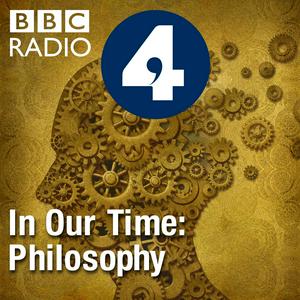
Obtenha a aplicação gratuita radio.pt
- Guardar rádios e podcasts favoritos
- Transmissão via Wi-Fi ou Bluetooth
- Carplay & Android Audo compatìvel
- E ainda mais funções
Obtenha a aplicação gratuita radio.pt
- Guardar rádios e podcasts favoritos
- Transmissão via Wi-Fi ou Bluetooth
- Carplay & Android Audo compatìvel
- E ainda mais funções


In Our Time: Philosophy
Leia o código,
descarregue a aplicação,
ouça.
descarregue a aplicação,
ouça.



